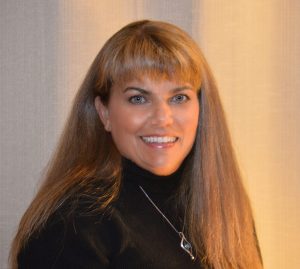Faculty and staff in the Department of Allied Health Sciences’ (DAHS) Center for Literacy and Disability Studies (CLDS) have created a set of easy-to-read COVID-19 resources for the Centers for Disease Control and Prevention (CDC) and for the CDC Foundation. The resources, supported by the Center for Inclusive Design and Innovation at Georgia Tech, are designed to simplify COVID-19 guidance documents created by the CDC to make them accessible to people with intellectual and developmental disabilities or who have very low literacy skills.

Karen Erickson, the director of the CLDS, said that public health information often follows plain language guidelines, but that they can still be too complex.
“It is rewarding to know that we were able to make a contribution that addresses the needs of a population that has been central to the work of the CLDS for more than three decades,” Erickson said.
Erickson said an estimated 56 million adults in the United States have basic or below-basic reading skills, and reading challenges are ubiquitous among the more than seven million people in the United States who have intellectual and developmental disabilities.
“This has presented a significant problem during the COVID-19 pandemic, with people with intellectual disabilities three times more likely to die than people without intellectual disabilities who contract the virus,” Erickson said.
Stephen Hooper, an associate dean for medicine and chair of the DAHS, said the CLDS’s work is highly innovative and wide reaching.
“The Department of Allied Health Sciences is grateful for the center’s leadership, particularly during the COVID-19 pandemic, to move quickly and make these resources available,” Hooper said. “The CLDS’s work in ensuring equitable access to these documents means that all populations, including our most vulnerable, will have critical access to health care information. I couldn’t be more proud of these efforts.”
The resources make basic guidance regarding COVID-19 accessible to this population by addressing topics such as disease transmission, prevention, cleaning, and self care. They also offer support for parents who are trying to make decisions regarding their child’s participation in remote or in-person learning, and they provide support for people who live in shared housing.
As part of this work, fourth-year speech and hearing sciences PhD student Sofia Benson-Goldberg and assistant professor Lori Geist developed text complexity guidelines. The guidelines include recommendations to use active voice and to avoid use of negation in order to simplify texts.
The mission of the CLDS, founded in 1990, is to promote literacy and communication for people of all ages who have developmental disabilities.
Karen Erickson, PhD, is the director of the Center for Literacy and Disability Studies and is the Yoder Distinguished Professor in the DAHS. Erickson is also a professor in the Division of Speech and Hearing Sciences. Benson-Goldberg, MS, CCC-SLP, is a research assistant with the CLDS. Lori Geist, PHD, CCC-SLP, also conducts research for the center. Stephen Hooper, PhD, has served as associate dean of medicine and chair of the department since 2013.
